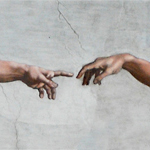 The practice of religion interrupts the human preoccupation with self-serving activity—which suggests that one function of religion is to keep people from being too obsessed with their personal interests. But why should that obsession, which confers an advantage in evolutionary fitness, be prevented? Could there be a countervailing advantage in being relieved from the same obsession? Or does this aspect of religion perhaps decrease human evolutionary fitness? It is a mistake to assume that every characteristic which takes hold in a population increases fitness. Daniel Dennett’s book on the memetics of religion, Breaking the Spell, opens with a counter-example:
The practice of religion interrupts the human preoccupation with self-serving activity—which suggests that one function of religion is to keep people from being too obsessed with their personal interests. But why should that obsession, which confers an advantage in evolutionary fitness, be prevented? Could there be a countervailing advantage in being relieved from the same obsession? Or does this aspect of religion perhaps decrease human evolutionary fitness? It is a mistake to assume that every characteristic which takes hold in a population increases fitness. Daniel Dennett’s book on the memetics of religion, Breaking the Spell, opens with a counter-example:
You watch an ant in a meadow, laboriously climbing up a blade of grass, higher and higher until it falls, then climbs again, and again, like Sisyphus rolling his rock, always striving to reach the top. Why is the ant doing this? What benefit is it seeking for itself in this strenuous and unlikely activity? [Dennett, 2006, p 3]
The answer, it turns out, is no benefit—to the ant! Its grass-climbing behaviour is prompted by a tiny parasite, a lancet fluke, that has penetrated its brain. In order to complete its reproductive cycle, the fluke must find its way into the digestive system of a sheep or cow. By commandeering the motor apparatus of its host the ant, the fluke puts itself in the way of being grazed.
Dennett’s book takes as its starting point Richard Dawkins’ observation that the memes of human culture, like genes, are replicating entities whose populations wax or wane according to principles of natural selection.[Dawkins, 1976] Among the memes that thrive or die are religious ones. The provocative question animating Dennett’s discussion of religion is, “What is the relationship of religious ideas to their human hosts? Do religions benefit their believers, are they neutral, or are they—like the lancet fluke to the ant—deleterious parasites?” Continue reading “Religion and Evolutionary Fitness”
